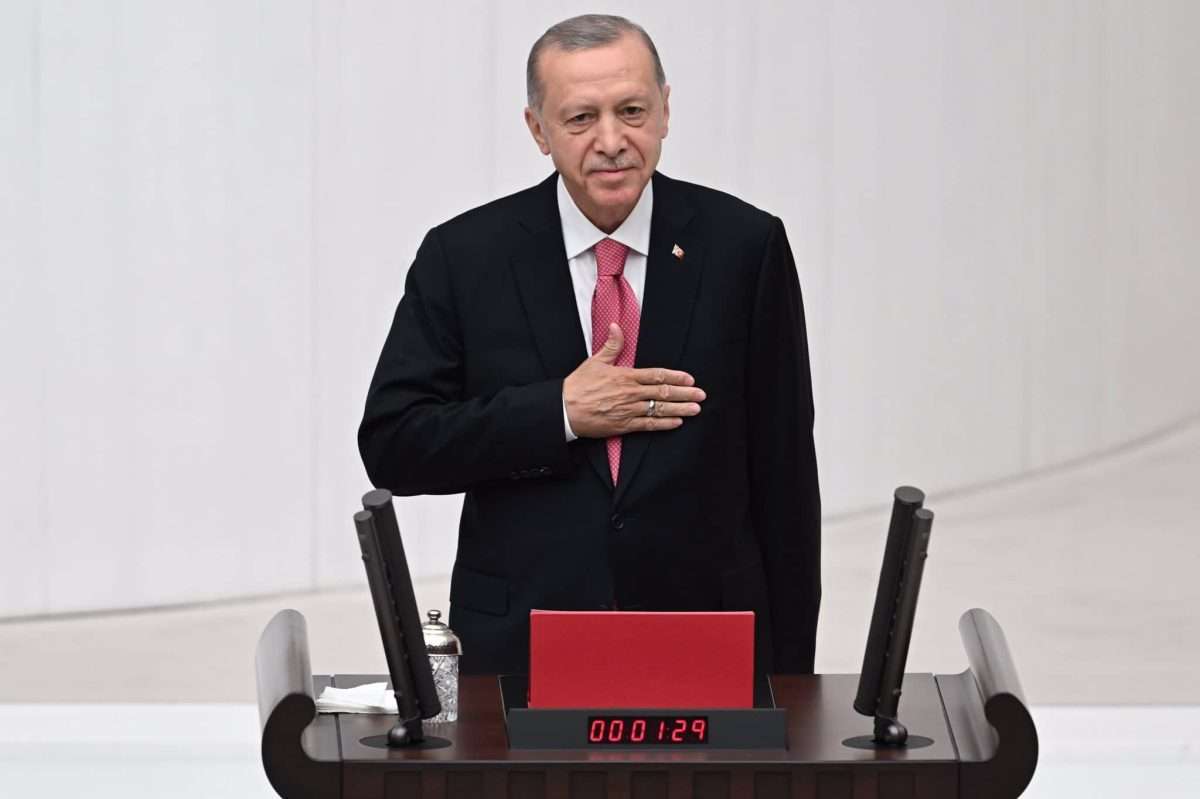Turkish President Recep Tayyip Erdogan has pledged support for Sweden’s attempt to join NATO, a move applauded by international leaders. This development comes after Turkey had previously blocked the bid, accusing Sweden of harbouring Kurdish militants. Swedish Prime Minister Ulf Kristersson has hailed the day as a significant milestone for his country.
 by Brandon Mitchell
by Brandon Mitchell
Turkey’s President Recep Tayyip Erdogan has affirmed his commitment to backing Sweden’s application to join NATO, a breakthrough moment relayed to the world by NATO’s Secretary-General, Jens Stoltenberg.
According to Stoltenberg, President Erdogan is primed to advance Sweden’s application to the Turkish parliament, thereby facilitating the process of ratification.
Swedish Prime Minister Ulf Kristersson expressed his joy at this development, stating, “This is indeed a significant day for Sweden.”
The endorsement follows months of Turkish opposition to Sweden’s NATO candidacy, driven by accusations that Sweden was harbouring Kurdish insurgents. As one of NATO’s 31 current members, Turkey holds the power to veto any new entrant into the military alliance.
US President Joe Biden expressed his enthusiasm for Erdogan’s commitment to a “prompt ratification”, confirming his readiness to cooperate with both Erdogan and Turkey to boost defense and deterrence within the Euro-Atlantic region. “I eagerly await the opportunity to welcome Prime Minister Kristersson and Sweden as our 32nd NATO ally,” read a statement issued by the White House.
Global leaders, including German Foreign Minister Annalena Baerbock and British Prime Minister Rishi Sunak, expressed their support for Sweden’s addition to the NATO family, emphasizing the increased security it brings.
The consensus was reached late Monday following bilateral discussions between Erdogan and Kristersson in Vilnius, Lithuania. Although hailing this as a “historic step”, Stoltenberg clarified that the exact timeline for Sweden’s official inclusion in the military alliance was contingent upon approval by the Turkish parliament.
Sweden and its eastern neighbor, Finland, long-standing neutral nations, declared their intent to join NATO in May last year, a few months after Russia initiated a full-scale invasion of Ukraine. Finland formalized its NATO membership in April.
Stoltenberg confirmed that Sweden and Turkey had successfully addressed Turkey’s valid security concerns. In response, Sweden had revised its constitution, overhauled its laws, increased its counter-terrorism initiatives against the Kurdistan Workers’ Party (PKK), and recommenced arms exports to Turkey.
Turkey and Hungary remain the only two NATO members yet to approve Sweden’s application. Hungarian Foreign Minister Peter Szijjarto dismissed this delay as a mere “technicality”.
During Monday’s meeting, Erdogan appeared to connect Turkish backing for Sweden’s NATO application with the reopening of frozen EU membership discussions with Ankara. EU officials swiftly dismissed this proposition, underlining the distinction between the two matters.
However, a subsequent statement from NATO confirmed that Sweden would actively assist in rejuvenating Turkey’s EU membership process, including modernization of the EU-Turkey customs union and visa liberalisation.
Turkey first sought EU membership in 1987, but its progress towards authoritarianism under President Erdogan resulted in a stall in proceedings. Nonetheless, the recent Russian invasion of Ukraine has spotlighted Erdogan’s unique role as a NATO leader with Moscow ties.
Erdogan played a crucial part in the Black Sea Grain Initiative last year, which allowed Ukraine to export agricultural goods from its ports. Despite frequent threats of withdrawal from Russia, Turkey has continued to sustain the deal.
However, Turkey’s provision of armed drones to Ukraine and its unexpected repatriation of five former Ukrainian garrison commanders from Mariupol to Kyiv has strained relations with Russia.
The NATO summit set to begin in Vilnius on Tuesday will see Ukraine’s NATO membership bid as a central discussion point. Though NATO members unanimously agree that Ukraine cannot join the bloc during wartime, Ukrainian President Volodymyr Zelensky hopes for a “clear signal” regarding Ukraine’s candidacy.
Eastern European NATO members are advocating for a fast-track membership for Ukraine. However, nations such as the US and Germany are adopting a more cautious approach.
Dmitry Peskov, spokesperson for Russian President Vladimir Putin, warned that Ukraine’s NATO membership would negatively impact the security architecture in Europe, necessitating a “firm and clear reaction” from Russia.
(Associated Medias) – All right reserved
